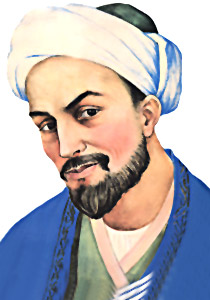One of the famous and greatest classical Sufi authors of the thirteenth century, Sheikh Saadi was born in the place named Shiraz, in Iran. His full name was Muslih-ud-Din Mushrif ibn Abdullah. However, as he was a resident of Shiraz, he was popularly known as the Saadi of Shiraz. He was born in the year 1184. Saadi left his native town of Shiraz at a very young age and went to Baghdad for studying Arabic literature and Islamic sciences at Al-Nizamiyya of Baghdad. However, Saadi did not stay there for a long period and he continuously travelled through the countries like Anatolia, Syria, Egypt, and Iraq, from time to time. He travelled to India and Central Asia, as well. The great Sufi masters like Gilani and Suhrawardi were among the prominent instructors of Sheikh Saadi.
 During the years he travelled through various countries, Sheikh Saadi lived in remote areas and exchanged views with the merchants, farmers, preachers, wayfarers, thieves, and Sufi mendicants, for attaining knowledge. He continued to do so for a long period of twenty years or more. He was then preaching, advising, learning, honing his sermons, and polishing them into gems illuminating the wisdom and foibles of his people. He eventually came back to his native town at an old age.
During the years he travelled through various countries, Sheikh Saadi lived in remote areas and exchanged views with the merchants, farmers, preachers, wayfarers, thieves, and Sufi mendicants, for attaining knowledge. He continued to do so for a long period of twenty years or more. He was then preaching, advising, learning, honing his sermons, and polishing them into gems illuminating the wisdom and foibles of his people. He eventually came back to his native town at an old age.
Sheikh Saadi, spread his message through his numerous writings and among those, the books like Bustan ("The Orchard") completed in 1257 and Gulistan ("The Rose Garden") in 1258 are the most notable ones. Both the books are written in simple Persian language and contain unparallel richness of material and beauty of poetry. Saadi has written the entire book of Bustan in verse (epic metre) and the book consists of stories that aptly illustrate the standard virtues recommended to Muslims (justice, liberality, modesty, contentment). There are also some reflections on the behaviour of dervishes and their ecstatic practices, in this book.
Sheikh Saadi has written the Gulistan (The Rose Garden) in such a simple language that the book is still being used as the first textbook for the students of Persia. Gulistan is written in prose version and mainly contains some stories and personal anecdotes. Saadi has interspersed the text of the book with a variety of short poems that contain aphorisms, advice, and humorous reflections. Saadi has also demonstrates a profound awareness of the absurdity of human existence in this book and said that the fate of those who depend on the changeable moods of kings, is contrasted with the freedom of the dervishes. Sheikh Saadi has actually accomplished such a feat in this book that is still not attained in any Western language. A large number of most eminent Sufi authors have also recognised Gulistan as concealing the whole range of the deepest Sufi knowledge that can be committed to writing.
Apart from the two classic works of Bustan and Gulistan, Sheikh Saadi is also remembered as a great public speaker and lyricist. Saadi has the credit of writing a number of masterly general odes that portray the human experience. He is also the writer of some famous odes like the lament on the fall of Baghdad after the Mongol invasion in 1258. The lyrics of Sheikh Saadi can be found in Ghazaliyat ("Lyrics") and people can also find his odes in Qasa`id ("Odes"). Besides Persian, Sheikh Saadi has written a number of works in Arabic, as well. Saadi has mainly displayed a peculiar blend of human kindness and cynicism, humour, and resignation in his works. Saadi also nicely distinguished between the spiritual and the practical or mundane aspects of life.
A notable teaching of Sheikh Saadi is that related to the jewels and dust. Saadi said that if a gem falls into mud it is still valuable. However, if dust ascends to heaven, it remains valueless. About the day of battle, Saadi said that on the day of battle it is the slender horse-not the lumbering ox-that will be have use.. Talking about the scholars and recluses, Sheikh Saadi said that people should give money to the scholars, so that they can study more and they also should not give anything to the recluses, so that they may remain recluses. According to Saadi, the person who has self-conceited thoughts in his mind will never be able to hear the truth and the man, who remains on a straight path, never gets lost. He also had a clear view about good and evil and said that doing good to the evil is likely to be equivalent to doing evil to the good. While discussing about the difference between information and knowledge, Saadi said that however much a person studies, he cannot understand much of his studies without application of his knowledge. He stated that a donkey laden with books is neither an intellectual nor a wise man. He also said that the learned man, who only talks, will never be able to penetrate to the inner heart of man. In the view of Sheikh Saadi, if a dervish remains in a state of ecstasy, he is likely to be fragmented in both worlds. Apart from his teaching, the unique thing that differentiates Saadi from the other Sufi authors is that he embodies both the Sufi Sheikh and the travelling merchant. Saadi himself has put the two selves as the two almond kernels in the same shell.
The year of Saadi`s death is steeped into mystery. Some of the scholars say that Saadi died in the year of 1283, while some others claim the year to be 1291












